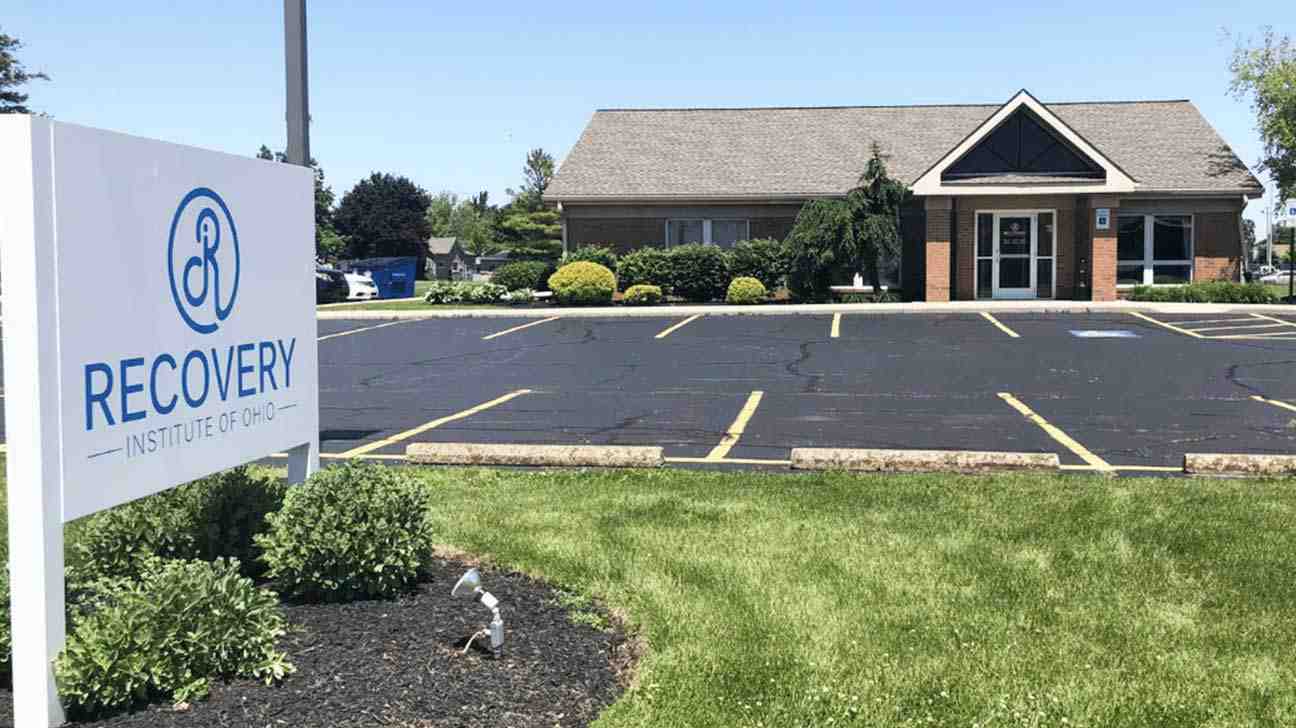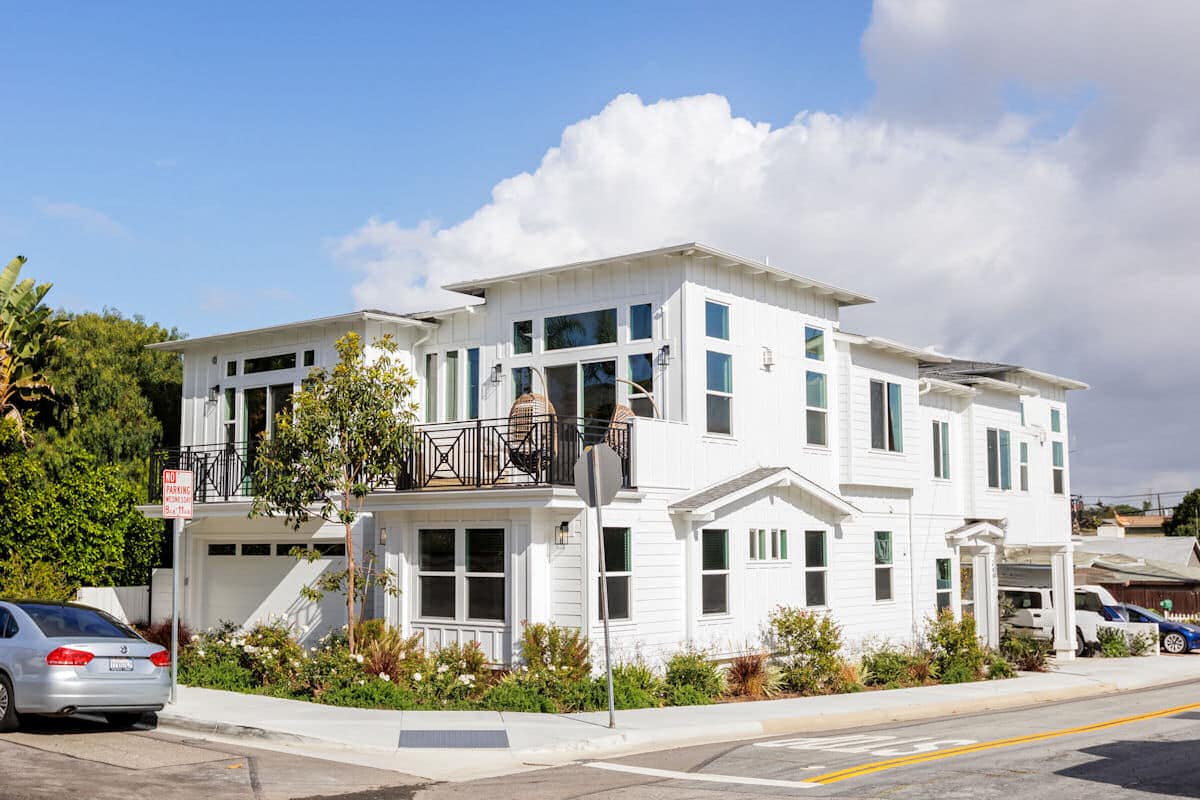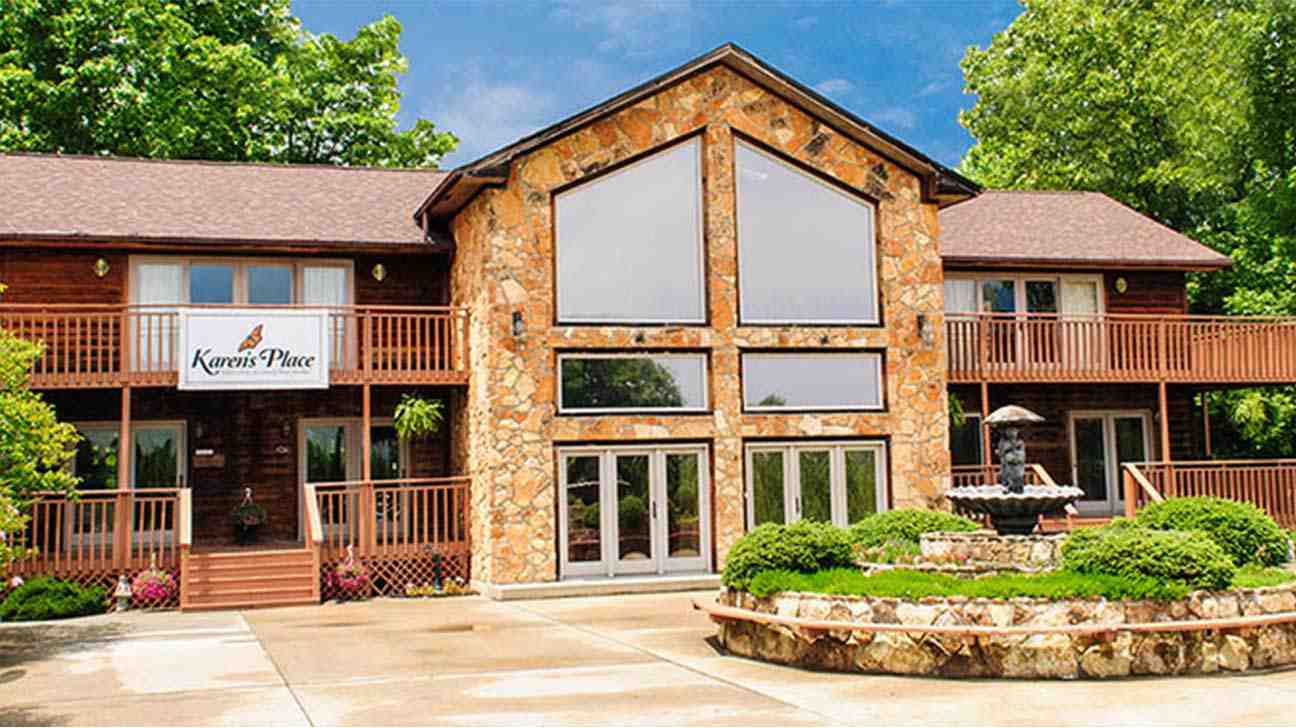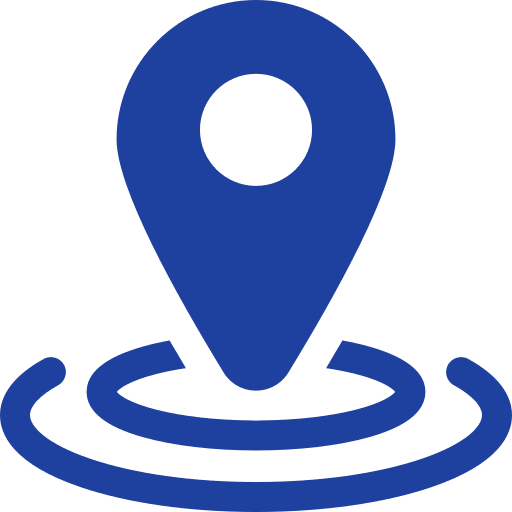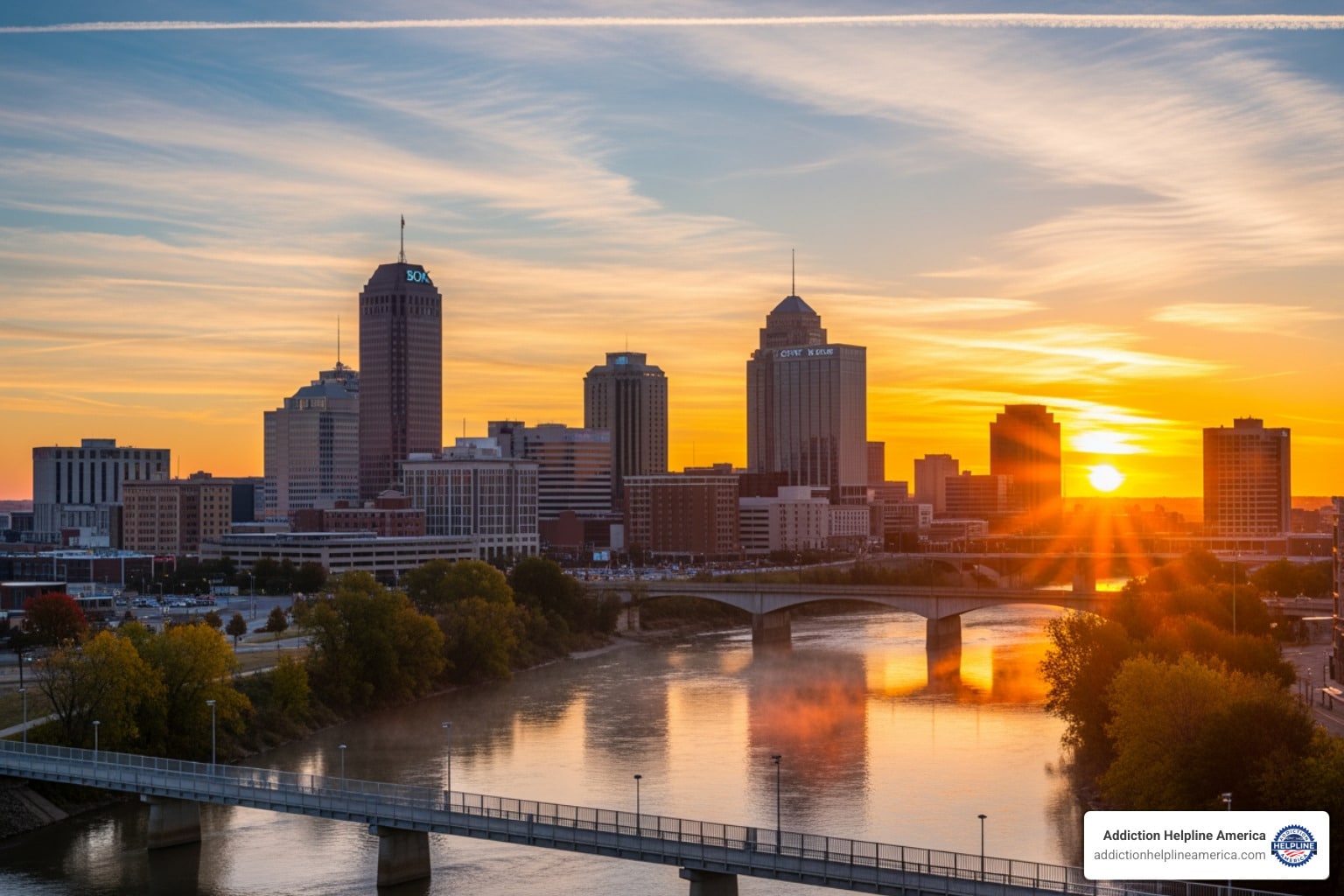
The Landscape of Addiction and Recovery in Tulsa
Outpatient rehab Tulsa offers flexible addiction treatment, allowing you to live at home while receiving professional care through therapy and support services. If you’re seeking treatment in Tulsa, here’s a quick overview:
Key Facts About Outpatient Rehab in Tulsa:
- 19 programs accept Medicaid insurance
- 13 facilities accept private health insurance
- 6 centers accept TRICARE military insurance
- Flexible scheduling allows you to maintain work and family commitments
- Services include: Individual therapy, group counseling, medication-assisted treatment (MAT), and relapse prevention
- Cost options: Insurance, sliding scale fees, self-pay, and rehab scholarships available
The need for accessible treatment in Tulsa is urgent. In 2019, Tulsa County had the seventh highest overdose hospitalization rate in the country, and every week, 94 Oklahomans are hospitalized for drug abuse. These numbers represent real people and families struggling, but recovery is possible through Tulsa’s range of outpatient programs.
Unlike inpatient programs, outpatient rehab provides structured treatment without requiring you to live at a facility. This allows you to maintain work and family responsibilities while immediately applying recovery skills in your daily life.
Tulsa’s facilities offer various levels of care, from Intensive Outpatient Programs (IOP) to less intensive options. Many provide specialized services for dual diagnosis, opioid addiction (MAT), trauma, veterans, and the LGBTQ+ community. Treatment centers use evidence-based therapies like Cognitive Behavioral Therapy (CBT), group counseling, and family therapy to build a foundation for healing.
At Addiction Helpline America, we connect individuals with quality outpatient rehab Tulsa programs that fit their unique needs. Our experience shows that the right program, combined with personal commitment, creates a powerful foundation for lasting sobriety.
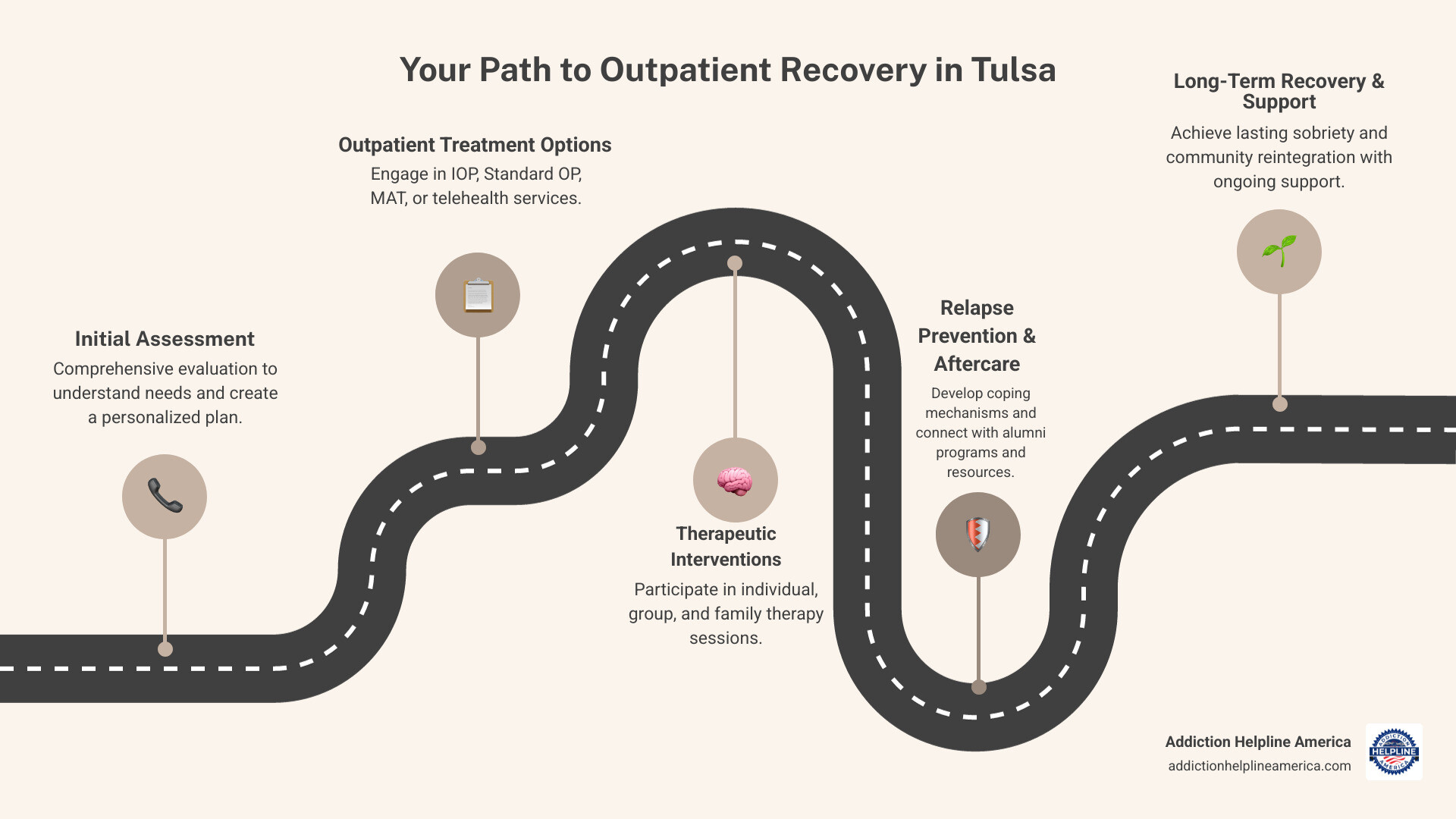
Outpatient rehab tulsa terms explained:
Understanding Your Options: Outpatient Rehab in Tulsa
Facing addiction is overwhelming, but outpatient rehab Tulsa offers a practical, effective path to recovery that fits into your life. Unlike inpatient care, outpatient treatment allows you to live at home and maintain your daily routine, including work, school, and family commitments, while receiving professional help.
This balance is essential for many people in Tulsa who can’t step away from their lives for 30 or 60 days. Outpatient programs provide the bridge between struggling alone and finding lasting recovery.
| Factor | Outpatient Rehab |
|---|---|
| Cost | Generally lower than inpatient |
| Time Commitment | Flexible, scheduled sessions (e.g., 3-5 days/week) |
| Living Situation | Lives at home, commutes to facility |
| Ideal Candidate | Strong home support, stable environment, moderate addiction |
| Flexibility | High, allows for daily responsibilities |
| Community Connection | Strong, integrates with local support networks |
The flexibility of outpatient care means your treatment can evolve with you, providing more support when you need it and stepping back as you grow stronger. You also get to apply new coping skills in real-life situations immediately, which helps reinforce what you learn in therapy.
For a deeper understanding of how outpatient compares to inpatient treatment, explore our guide on Outpatient Addiction Treatment.
Types of Outpatient Services Available
Tulsa’s treatment landscape includes several types of outpatient services designed for different stages of recovery.
Intensive Outpatient Programs (IOP) offer the highest level of outpatient care, typically involving 9-12 hours of treatment weekly. Facilities like Laureate Psychiatric Clinic and Hospital and Valley Hope of Tulsa provide comprehensive IOP services with flexible scheduling, including evening sessions.
Standard Outpatient Programs (OP) are less intensive, with one to eight hours of treatment weekly. They are ideal for stepping down from a higher level of care or for those with milder substance use issues.
Telehealth services have made care more accessible. Many Tulsa facilities, including Counseling and Recovery Services of OK, offer virtual therapy sessions, allowing you to receive treatment from home.
Medication-Assisted Treatment (MAT) is a highly effective approach for opioid use disorder, combining FDA-approved medications with counseling. Tulsa Comprehensive Treatment Center and Oklahoma Treatment Services Tulsa specialize in MAT, using medications like methadone to manage cravings and withdrawal.
Counseling services are the cornerstone of all outpatient rehab Tulsa programs, including individual, group, and family therapy to address the root causes of addiction.
The Benefits of Choosing an Outpatient Program
Outpatient treatment offers practical advantages that fit real life.
Cost-effectiveness is a major benefit, as outpatient programs are typically much less expensive than inpatient care because they don’t include room and board.
Flexible scheduling with morning, afternoon, and evening sessions allows you to get help without sacrificing your job or other responsibilities. Valley Hope of Tulsa emphasizes this flexibility.
Real-world application of skills helps you practice coping strategies in your daily environment, strengthening your recovery.
Strong family involvement is easier when you’re living at home. Many programs offer family therapy to help heal relationships and build a supportive home environment.
Access to local support systems, including friends, family, and community groups, provides a crucial safety net throughout your treatment.
What to Look For in a Top Outpatient Rehab in Tulsa
Finding the right outpatient rehab Tulsa program is easier when you know what to look for. Key quality markers can help you identify programs that deliver real results.
First, check for accreditation from organizations like CARF (Commission on Accreditation of Rehabilitation Facilities) or The Joint Commission. This signals that a facility, such as the CARF-accredited Oklahoma Treatment Services Tulsa, meets high national standards. Second, ensure the staff includes licensed professionals with specific training in addiction medicine. Finally, the best programs use evidence-based practices like Cognitive Behavioral Therapy (CBT), Dialectical Behavior Therapy (DBT), and Medication-Assisted Treatment (MAT). You can learn more about accredited Substance Use Treatment Centers to understand what these credentials mean.
A quality facility’s environment should feel safe and professional, reflecting its commitment to your recovery.

Specialized Programs for Specific Needs
Recovery is not one-size-fits-all. The best programs offer specialized tracks for unique circumstances.
Dual diagnosis treatment is for those with both an addiction and a mental health condition like depression or anxiety. Effective programs, like those at Counseling and Recovery Services of OK, treat both simultaneously, recognizing they are deeply connected.
Trauma-informed care creates a safe space for individuals whose substance use is driven by past trauma. Programs offering therapies like EMDR (Eye Movement Desensitization and Reprocessing), available at Counseling and Recovery Services of OK, address these underlying wounds.
Veterans face unique challenges like service-related PTSD. Specialized outpatient rehab Tulsa programs understand military culture and provide targeted support for the issues veterans face.
LGBTQ+ individuals benefit from affirming spaces where they can be themselves without fear of judgment. Culturally competent care that understands the specific stressors faced by the LGBTQ+ community leads to better outcomes.
Substance-specific treatment provides focused expertise. For example, Tulsa Comprehensive Treatment Center specializes in opioid addiction with Medication-Assisted Treatment, while Great Plains Recovery offers specific programs for alcohol addiction.
The Role of Therapy in Tulsa’s Outpatient Rehab Programs
Therapy is where you learn new skills, build support, and do the work of recovery.
Individual therapy provides a confidential, one-on-one setting to explore the root causes of addiction and develop personalized coping strategies.
Cognitive Behavioral Therapy (CBT) gives you practical tools to identify and change the negative thought patterns that lead to substance use. It’s a core service at centers like Tulsa Comprehensive Treatment Center.
Group therapy offers the powerful realization that you’re not alone. Sharing experiences with others who understand your struggle builds connection and accountability.
Peer support connects you with individuals in recovery who offer hope and practical advice. Valley Hope of Tulsa emphasizes this connection as a vital part of its program.
Family therapy helps repair relationships damaged by addiction. It teaches your loved ones how to support your recovery, strengthening your foundation for sobriety.
Building coping mechanisms is the ultimate goal. Therapy teaches you how to handle stress, manage emotions, and steer high-risk situations without turning to substances.
Your Recovery Journey: What to Expect from Treatment
Starting outpatient rehab Tulsa is a courageous, life-changing step. Understanding the process can make it feel less overwhelming. The journey is built around you, beginning with a personalized treatment plan based on your unique history and goals.
You’ll follow a structured schedule of therapy and meetings while living at home, allowing you to balance recovery with daily life. An Intensive Outpatient Program (IOP) might involve 9-12 hours per week, while less intensive programs require fewer hours.
Throughout treatment, your progress will be carefully monitored by your counselors. This ongoing assessment ensures your plan remains effective and can be adjusted as you grow stronger in your recovery.

The Intake and Assessment Process
Before treatment begins, you’ll complete an intake and assessment so the team can get to know you.
It starts with an initial confidential call with an admissions specialist who can answer questions about the program, costs, and insurance. This call is pressure-free, and providers like Valley Hope of Tulsa offer them 24/7.
Next, a comprehensive evaluation will cover your substance use history, social circumstances, and medical background. This ensures your treatment plan is thorough. Tulsa Comprehensive Treatment Center conducts detailed assessments to create the most effective plan.
A mental health screening is also standard, as conditions like depression and anxiety often co-occur with addiction. Identifying these issues early allows for integrated care that addresses both problems at once.
All this information helps your team create a personalized recovery plan that outlines your goals, therapies, and schedule. If you’re entering a Medication-Assisted Treatment (MAT) program, it will detail your medication and counseling services.
How Outpatient Programs Support Relapse Prevention and Aftercare
Lasting sobriety requires ongoing support. The best outpatient rehab Tulsa programs integrate relapse prevention and aftercare into your treatment from the start.
You’ll learn to identify your triggers and develop healthy coping mechanisms, culminating in a detailed relapse prevention plan. This practical tool prepares you for challenges after you complete the program. Valley Hope of Tulsa emphasizes these strategies throughout its IOP.
Many centers offer alumni programs to keep you connected to a recovery community. Great Plains Recovery in Tulsa, for example, has a strong alumni network that provides ongoing engagement and support.
Your treatment center can also connect you with community resources for long-term recovery, such as ongoing therapy, vocational training, or housing assistance. At Addiction Helpline America, we help you find Oklahoma Rehab Centers that prioritize this community integration.
Finally, peer support groups are a lifeline for many. Consider connecting with groups like:
- Alcoholics Anonymous (AA) for alcohol addiction support
- Narcotics Anonymous (NA) for drug addiction recovery
- SMART Recovery for science-based mutual support
- Celebrate Recovery for faith-based healing
These free, widely available groups can help you maintain sobriety for the long term.
Paying for Outpatient Rehab Tulsa: Costs and Insurance
A common concern when seeking outpatient rehab Tulsa is: “How am I going to pay for this?” Financial challenges shouldn’t be a barrier to recovery, and many options are available to make care affordable.
Costs vary based on the program’s intensity (IOPs cost more than standard outpatient), the services included (like MAT or specialized therapy), and the length of treatment. Most facilities are transparent about pricing and will discuss payment options with you upfront.

Insurance Coverage and Financial Assistance
Fortunately, there are many ways to make outpatient rehab Tulsa affordable.
Private health insurance is widely accepted, with 13 rehab programs near Tulsa taking private plans. Centers like Valley Hope of Tulsa work with most major providers. It’s best to call the center to verify your benefits and understand your coverage.
Medicaid is a vital resource for those with limited income, and 19 rehab programs in Tulsa accept it, making quality care accessible.
For military families and veterans, TRICARE covers addiction treatment at 6 facilities in Tulsa.
If you don’t have insurance, self-pay options are available at 14 facilities in Tulsa, many of which offer payment plans to make the cost more manageable.
Some programs also offer sliding scale fees, adjusting the cost based on your income. Additionally, don’t overlook rehab scholarships, which may be available through federal funding or SAMHSA grants. Always ask an admissions specialist about financial assistance. For more on payment options, you can explore resources like Keetoowah Cherokee Treatment Services.
At Addiction Helpline America, we can help you steer these financial questions and find a program that fits your budget. The investment in your recovery pays dividends for a lifetime.
Frequently Asked Questions about Outpatient Rehab in Tulsa
Choosing a treatment path can be confusing. Here are answers to some of the most common questions we hear from people exploring outpatient rehab Tulsa options.
When is outpatient the right choice?
Outpatient rehab is a great choice if you have a stable, supportive home environment and don’t require 24/7 medical supervision. It’s ideal for those with moderate addictions who need to continue with work, school, or family responsibilities. It also serves as an effective step-down from an inpatient program, helping you transition back to daily life with continued support.
The key is an honest assessment of your needs. At Addiction Helpline America, we can help you evaluate if outpatient care is the right fit for your situation.
How do programs in Tulsa address co-occurring mental health disorders?
Many people with addiction also have co-occurring mental health disorders like depression or anxiety. Top outpatient rehab Tulsa centers, such as Counseling and Recovery Services of OK, offer dual diagnosis treatment, where an integrated team addresses both conditions simultaneously. This is crucial for lasting recovery.
These programs use therapies like Cognitive Behavioral Therapy (CBT) and Dialectical Behavior Therapy (DBT) to treat both the addiction and the mental health condition. For those with trauma, specialized therapies like EMDR may be used. By treating both issues together, facilities like Laureate Psychiatric Clinic and Hospital give you a much better chance of building a stable, healthy life.
What is the typical duration of an outpatient rehab program?
There is no fixed timeline; the duration of your outpatient rehab Tulsa program is custom to your individual progress. An Intensive Outpatient Program (IOP) at a facility like Laureate Psychiatric Clinic and Hospital might last for several weeks to a few months, after which you may step down to less frequent standard outpatient sessions.
The length of your treatment depends on the severity of your addiction, the presence of any co-occurring disorders, and how quickly you apply your new recovery skills. The goal is to provide the right level of support for as long as you need it, ensuring a strong foundation for long-term sobriety. Many programs also offer aftercare services to provide support well beyond the formal treatment period.
At Addiction Helpline America, we help you find programs that offer the flexibility and personalized care needed to build lasting sobriety.
Take the First Step Towards a Healthier Future
The journey to recovery begins with a single, courageous step. As we’ve explored, outpatient rehab Tulsa offers a wide range of options, from Intensive Outpatient Programs to flexible care that fits your life. With specialized treatment for dual diagnosis, trauma, and more, along with proven therapies, the resources you need are available right here in your community.
Recovery is achievable. While statistics on addiction can be daunting, they don’t define your future. Many have walked this path and built new lives, and you can too. It’s normal to feel doubtful, but don’t let that stop you from reaching out for confidential, no-pressure help.
At Addiction Helpline America, we make that first step simple. Our free, confidential service connects you with the right recovery program for your unique needs. You don’t have to figure this out alone. We’re here to provide personalized guidance and support you on your journey.
Seeking help is the most important step you can take. Addiction rarely improves on its own, but with the right support and treatment, recovery transforms from a distant hope into a daily reality. The outpatient programs in Tulsa are designed to meet you where you are, providing the structure you need while allowing you to maintain your life and responsibilities.
Find a Tulsa Rehab Program Today and take that courageous first step towards a healthier, freer future. Your story can be one of recovery, resilience, and hope.
Our helpline is 100%
free & confidential
If you or someone you care about is struggling with drug or alcohol addiction, we can help you explore your recovery options. Don’t face this challenge alone—seek support from us.
Programs
Resources
Will my insurance
cover addiction
treatment?
We're ready to help
Find the best
drug or alcohol treatment
center
Are you or a loved one struggling with addiction? Call today to speak to a treatment expert.


